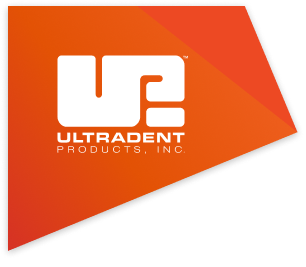At Ultradent Products, we believe in putting our patients and their health first. That is why all of Ultradent Products' products, including all composite materials and sealants, have always been and always will be BPA (Bisphenol-A) free. To better educate our patients on this important matter, let’s take a look at the history of BPA, why it is harmful, and how the “BPA-free” standard is measured.
A Brief History of BPA
In 1891, BPA was first produced to enhance the growth of cattle and poultry, and to act as an estrogen replacement for women. By the 1950s, companies began to widely use BPA in the production and manufacturing of plastic bottles, metal cans, and other common household items. However, in the 1970s concerns over the safety of BPA increased as numerous research studies showed the possibility of harmful side effects in humans if consumed or absorbed, such as breast and prostate cancer, obesity, birth defects, and a plethora of other problems.
In 1996, an infamous study known as the Granada Study was published showing that Bis-DMA-based sealants release BPA into the mouth. This study made many glaring errors, leading people to believe that all sealants in the dental market use the same chemistry, although the Granada Study only tested one sealant from one dental company (not Ultradent Products).
In 1978, when Ultradent Products introduced its first resin-based product, Ultradent Products prohibited the use of any materials that contain BPA in any of its products—already knowing the risks associated with the synthetic compound.
Bis-GMA (Bisphenol-A Glycidyl Methacrylate)
As people have become more and more aware of the dangers of BPA over the years, many have wrongly associated any synthetic material that begins with “bis” as dangerous or harmful. This isn’t always the case, as the prefix “bis” simply means “two,” or “symmetrical.” Just as a bicycle has two symmetrical wheels, chemical compounds that have the prefix “bis” in their name contain two symmetrical halves.
Bis-GMA is a highly stable compound that is used by a variety of manufacturers, including Ultradent Products. When developed properly, the structure of Bis-GMA molecules forms in a way that won’t break down in the mouth and won’t be absorbed into the human body.
There is more than one way to make Bis-GMA. Some manufacturers make it by reacting BPA with another chemical compound. Because BPA is one of the reactants in this chemical process, there will always be some residual BPA in the Bis-GMA that’s created. Ultradent Products does not use this process. Ultradent Products creates Bis-GMA without ever using BPA in the reaction. Thus, because BPA is never a part of the equation, the Bis-GMA that is produced does not contain even trace amounts of BPA, making all products of Ultradent Products certified BPA-free.
What Qualifies a Product as BPA-Free?
Ultradent Products routinely tests its products, both internally and via external laboratories for trace amounts of BPA down to the level of 1 part per million (ppm). Ultradent Products has never found BPA in any of its cured formulated materials, although we acknowledge that there’s a possibility for BPA to be present in an amount so small that it doesn’t register at the 1 ppm level.
To put this in perspective, if any of the products of Ultradent Products were to test positive for BPA at a theoretical amount of 1 ppm, a 33 lb (15 kg) child would need to have 165 lbs (75 kg) of material implanted per day, every day, to exceed the FDA safe exposure limit. Thus, a typical procedure using 0.2 grams of composite that theoretically contains 1 ppm of BPA would need to be performed 375,000 times in the same day to exceed the FDA safe exposure limit.
Dr. Dan Fischer, Founder & CEO of Ultradent Products, Inc.
Dr. Fischer, founder and CEO of Ultradent Products says, “Considering the potential daily environmental exposure that a patient can experience through other means—receipts (thermal paper), recycled paper, soda cans, or canned foods—we feel confident that, from any practical standpoint, dental material below the 1 ppm detectible limit is considered ‘BPA free.’” Ultradent Products has never used BPA in any of our resin products (as measured under 1 ppm), and we will continue to uphold this firm standard.
Learn more about Ultradent Products here.












